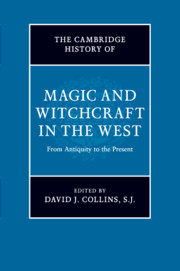'This impressive collective volume proposes a coherent history of learned magic in Western Europe and the colonial world between Christianization and contemporary neo-paganism. It has found an access to magic that contrasts with the many studies that situate magic in a religious or anthropological context, and thus is a welcome and necessary supplement and corrective. Giordano Bruno would have relished it.'
Fritz Graf - Ohio State University
'This volume offers a rich and exciting set of essays that will prove invaluable to scholarly discussions of Western magic and witchcraft. With contributions from a range of innovative scholars, the collection masterfully intertwines expansive historical and cultural insight with creative theoretical reflection.'
Randall Styers - University of North Carolina, Chapel Hill
'This important and ambitious collection of twenty authoritative essays … is likely to become a standard work in the field because of the quality of the contributions, and the unprecedented wide range of material covered in a single volume … the choice of chapters and selection of scholars would be hard to better … it ought to be on the shelf of every historian of religion, let alone historians of witchcraft and magic.'
Francis Young
Source: Journal of Jesuit Studies
'… this volume is well constructed, thoughtful, and interesting, with contributing authors of high scholarly standing. It is recommended to readers interested in magic and witchcraft, and their close relatives - religion and esotericism - across a broad historical and geographical sweep.'
Carole M. Cusack
Source: Church History
'There can be no doubt that it is a welcome addition to magic and witchcraft studies since it offers a refreshing number of departures from tired clichés, and invites the reader to think about magic beyond the boundaries of western Europe. … Both Collins and his contributors are to be congratulated on their ambition for this volume, and its individual accomplishments.'
Peter Maxwell-Stuart
Source: The Journal of Ecclesiastical History





